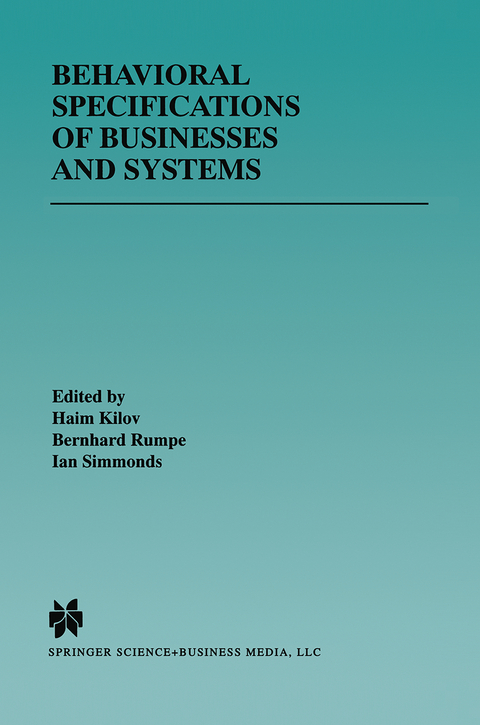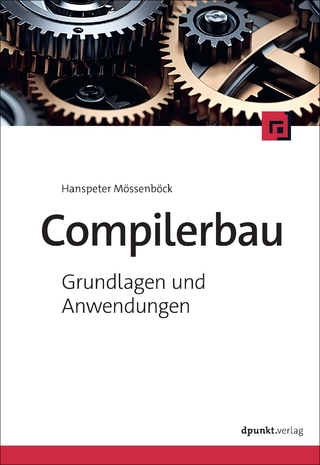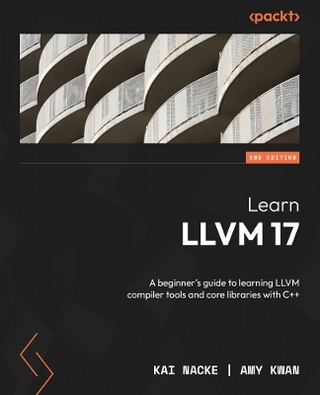
Behavioral Specifications of Businesses and Systems
Springer (Verlag)
978-0-7923-8629-2 (ISBN)
Behavioral Specifications of Businesses and Systems emphasizes simplicity and elegance in specifications without concentrating on particular methodologies, languages or tools. It shows how to handle complexity, and, specifically, how to succeed in understanding and specifying businesses and systems based upon precise and abstract concepts. It promotes reuse of such concepts, and of constructs based on them, without taking reuse for granted.
Behavioral Specifications of Businesses and Systems is the second volume of papers based on a series of workshops held alongside ACM's annual conference on Object-Oriented Programming Systems Languages and Applications (OOPSLA) and European Conference on Object-Oriented Programming (ECOOP). The first volume, Object-Oriented Behavioral Specifications, edited by Haim Kilov and William Harvey, was published by Kluwer Academic Publishers in 1996.
1 Object-oriented transformation.- 2 Being served: The purposes, strengths and limitations of formal service modelling.- 3 What vs. how of visual modeling: The arrow-diagram logic of visual modeling.- 4 Meta-modelling semantics of UML.- 5 Combining JSD and Cleanroom for object-oriented scenario specification.- 6 What is behind UML-RT.- 7 Applying ISO RM-ODP in the specification of CORBA® interfaces and semantics to general ledger systems.- 8 Component-based algebraic specifications.- 9 A meta-model semantics for structural constraints in UML.- 10 On the structure of convincing specifications.- 11 Formalising the UML in structured temporal theories.- 12 JML: A notation for detailed design.- 13 Agents: Between order and chaos.- 14 UML, the future standard software architecture description language?.- 15 Using information modeling to define business requirements.- 16 A layered context perspective on enterprises and information systems.- 17 30 Things that go wrong in object-oriented modelling with UML 1.3.- 18 Formalizing association semantics in terminologies.- 19 On the specification of the business and economic foundations of electronic commerce.- 20 Embedding object-oriented design in system engineering.
| Reihe/Serie | The Springer International Series in Engineering and Computer Science ; 523 |
|---|---|
| Zusatzinfo | 150 Illustrations, black and white; XII, 315 p. 150 illus. |
| Verlagsort | Dordrecht |
| Sprache | englisch |
| Maße | 155 x 235 mm |
| Themenwelt | Mathematik / Informatik ► Informatik ► Programmiersprachen / -werkzeuge |
| Informatik ► Theorie / Studium ► Compilerbau | |
| ISBN-10 | 0-7923-8629-9 / 0792386299 |
| ISBN-13 | 978-0-7923-8629-2 / 9780792386292 |
| Zustand | Neuware |
| Haben Sie eine Frage zum Produkt? |
aus dem Bereich


